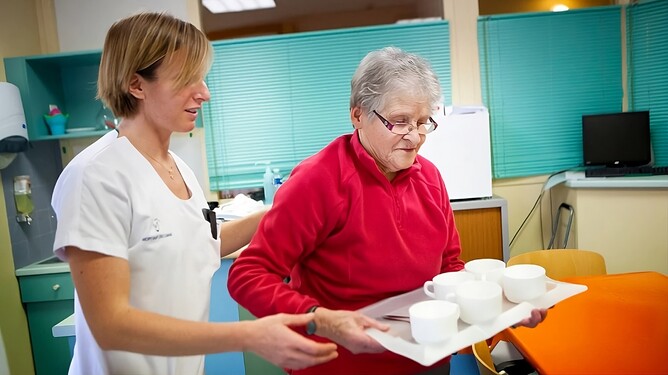Adaptive Strategies for Daily Living: Occupational Therapy Essentials
Living a full and independent life can be challenging for people with physical limitations or disabilities. Fortunately, occupational therapy can help. Occupational therapists are healthcare professionals who specialize in helping people regain or improve the skills they need to perform everyday activities (occupations). Through the use of adaptive strategies, they can empower individuals to live more independently and participate in the activities they find meaningful.
We will explore some essential adaptive strategies that they can teach you to improve your daily living skills.
What are Adaptive Strategies?
Adaptive strategies are modifications or changes made to tasks, environments, or tools to help people with limitations or disabilities perform activities more safely and easily. Occupational therapists work closely with their clients to assess their individual needs and goals, and then develop a personalized plan that incorporates appropriate adaptive strategies.
Common Adaptive Strategies in Daily Living
Personal care: They can teach you adaptive strategies for tasks such as dressing, bathing, grooming, and toileting. This may involve using assistive devices like grab bars, shower chairs, or dressing sticks. They can also help you modify your environment to make it easier to complete these tasks, such as installing raised toilet seats or lowering towel racks.
Meal preparation and eating: If you have difficulty preparing meals or eating independently, occupational therapists can suggest adaptive strategies such as using easy-grip utensils, weighted plates to prevent tipping, or pre-cut and pre-packaged foods. They can also teach you techniques for opening jars, using a can opener, or stirring food.
Home management: They can help you find ways to make your home environment safer and easier to navigate. This may involve rearranging furniture to create wider walkways, installing ramps or stair lifts, or using adaptive equipment like reachers or grabbers.
Transportation: Occupational therapists can help you develop strategies for getting around safely and independently. This may involve using public transportation, learning to use a wheelchair or scooter, or modifying your vehicle with hand controls or adaptive seating.
Leisure activities: They can help you find ways to participate in the hobbies and activities you enjoy. This may involve adapting your equipment, finding alternative ways to perform tasks, or learning new activities that are easier to manage.
Conclusion
Adaptive strategies are a valuable tool that can help people with limitations or disabilities live more independent and fulfilling lives. Occupational therapists are experts in developing and implementing these strategies. If you are struggling with daily living activities, they can help you find ways to overcome these challenges and live a more independent life.
At Holistic Strength, we are committed to integrating occupational therapy into our allied health services to provide comprehensive support to our clients. By working collaboratively with OT professionals, we strive to empower individuals to achieve their goals and lead fulfilling lives. If you or a loved one could benefit from occupational therapy services, we encourage you to reach out to our team today. Together, we can create a customized plan to help you thrive in your daily activities and pursuits.
